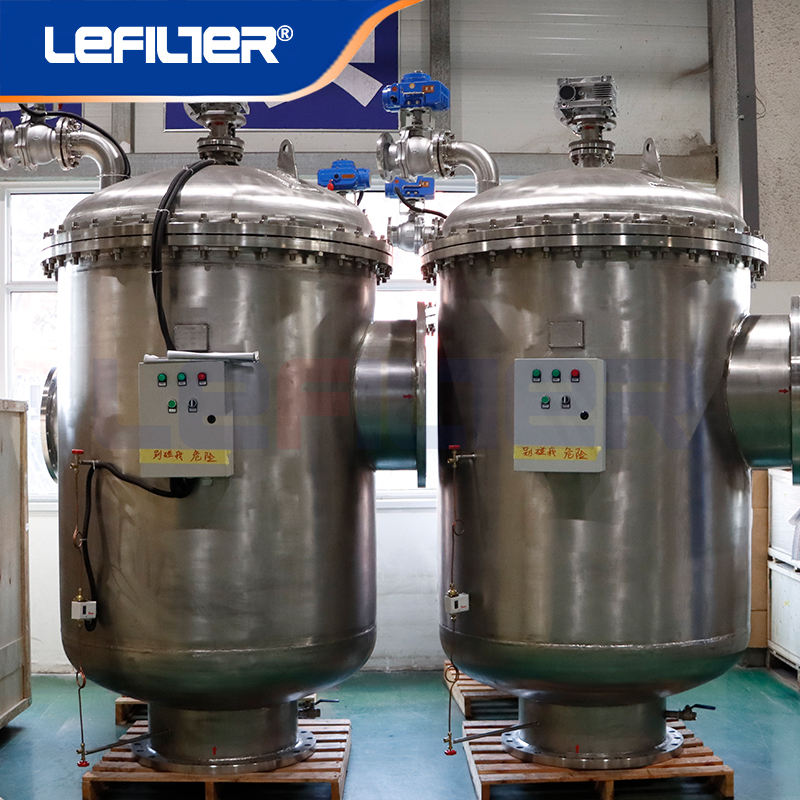The Role of Self-Cleaning Filters in Circulating Water Systems
DATE:2025-03-31 Number of views: 1 Source:dongwenhui
In the steel industry, efficiency, quality, and sustainability are paramount. One innovative solution that has emerged to address these challenges is the self-cleaning filter, particularly designed for circulating water systems in steel plants. This technology is revolutionizing how steel manufacturers manage their water resources, improve operational efficiency, and contribute to a more sustainable future.

What Are Self-Cleaning Filters?
Self-cleaning filters are automated systems that continuously remove contaminants from water without the need for manual intervention. In the context of a steel plant, where large volumes of water are utilized for cooling and processing, maintaining optimal water quality is critical. Traditional filtration methods often require labor-intensive cleaning processes that can lead to downtime and increased operational costs. Self-cleaning filters, however, use advanced technology to automatically monitor and clean themselves, ensuring that water remains free of debris and impurities.
Key Advantages of Self-Cleaning Filters
Automation and Efficiency: The primary advantage of self-cleaning filters is their automated operation. Equipped with sensors, these filters can detect when cleaning is necessary and perform the task without human intervention. This reduces labor costs and minimizes production interruptions.
Cost Savings: By eliminating manual cleaning and reducing downtime, self-cleaning filters significantly lower operational costs. Additionally, their durable design leads to fewer maintenance requirements and longer lifespans, ultimately providing substantial cost savings over time.
Enhanced Water Quality: Consistent filtration ensures that circulating water remains clean and clear, which is essential for efficient cooling and processing. Improved water quality also contributes to the longevity of equipment, reducing the risk of failures and unplanned maintenance.
Environmental Sustainability: Self-cleaning filters promote sustainable practices by optimizing water usage and minimizing waste. They help steel plants comply with environmental regulations while reducing their overall ecological footprint.
Versatility and Customization: These filters can be tailored to meet the specific needs of various applications within steel production. Whether used for cooling, processing, or other industrial purposes, self-cleaning filters offer flexibility in design and operation.

Real-World Applications and Success Stories
Steel manufacturers worldwide are increasingly adopting self-cleaning filters, and many have reported remarkable results. For instance, a leading steel plant integrated self-cleaning filters into their cooling water system and experienced a 30% increase in operational efficiency. They also noted a significant reduction in maintenance costs and improved product quality due to better water management.
Another facility utilized self-cleaning filters in their processing lines, resulting in a drastic decrease in downtime and a notable enhancement in water clarity. These success stories illustrate the transformative potential of self-cleaning filters in the steel industry.
Implementing Self-Cleaning Filters: Best Practices
To maximize the benefits of self-cleaning filters, it’s essential to follow best practices during their implementation:
Assessment of Needs: Conduct a thorough evaluation of your water systems to determine the appropriate self-cleaning filter models and configurations needed for optimal performance.
Integration with Existing Systems: Ensure compatibility with current infrastructure to streamline the transition and maintain operational efficiency.
Ongoing Monitoring: Although self-cleaning filters require less maintenance, regular monitoring is crucial to ensure they operate effectively.
Staff Training: Invest in training for your staff to familiarize them with the new technology, ensuring they can effectively operate and troubleshoot the filters.
Conclusion
The steel industry is at a turning point, with technology paving the way for improved efficiency and sustainability. Self-cleaning filters are not just a technological upgrade; they represent a fundamental shift in how steel manufacturers manage resources and processes. By adopting this innovative solution, steel plants can enhance operational efficiency, reduce costs, and contribute to a more sustainable future.


